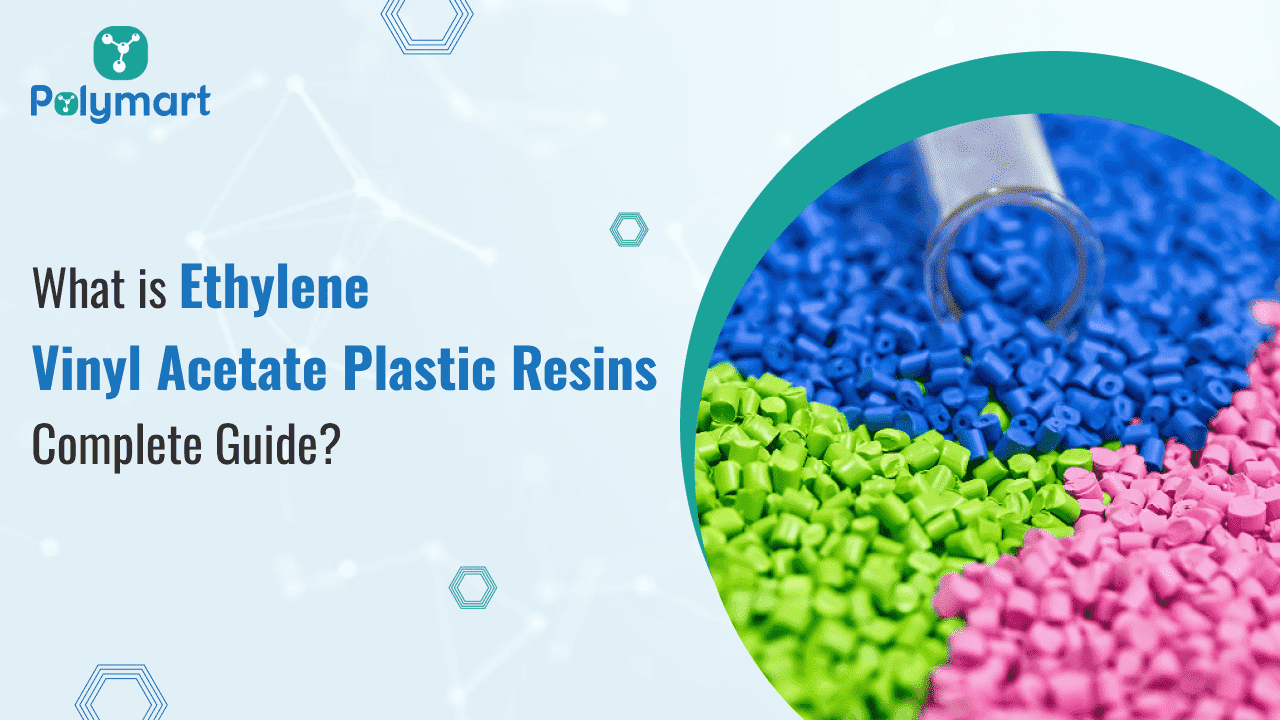
In the world of polymers, Ethylene Vinyl Acetate (EVA) holds a significant place due to its diverse applications and properties. EVA is a copolymer of ethylene and vinyl acetate, renowned for its flexibility, impact resistance, and thermal stability.
When it comes to sourcing high-quality EVA plastic resins from the best polymer distribution company in India, it is crucial to understand the real meaning and importance of Ethylene Vinyl Acetate Plastic Resins to make a smart decision
This comprehensive guide aims to delve into the various aspects of EVA plastic resins, addressing their composition, manufacturing processes, applications across industries, and environmental impact. So without further ado, let’s delve in.
What is Ethylene Vinyl Acetate Plastic Resin?
Ethylene Vinyl Acetate (EVA) is a type of plastic resin that is commonly used in various industries due to its versatile properties. It is formed through a process known as copolymerization, which involves combining two different monomers, ethylene and vinyl acetate, under specific conditions to form the polymer.
Ethylene, a simple hydrocarbon molecule derived from petroleum or natural gas, is the main building block of EVA. Vinyl acetate, on the other hand, is a compound formed from acetic acid and vinyl alcohol. When these two monomers are polymerized together, they form long chains of repeating units, producing EVA copolymer resin.
EVA has several desirable properties as a polymer, similar to PVC Polyvinyl Polymers. The properties of ethylene vinyl acetate plastic resin make it suitable for a wide range of applications, including footwear, packaging, solar panels, medical devices, and wire insulation.
Whether you want to buy PVC Polymers or sell polymers online – PolyMart has you covered. The PolyMart Buy App is a huge support to thousands of reliable buyers just like you who are having trouble contacting genuine polymer suppliers in India and avoiding scams that take advantage of people with an inadequate understanding of polymer price trends and steal large sums of money.
What are the Features & Properties of Ethylene Vinyl Acetate Polymers?
Ethylene Vinyl Acetate (EVA) polymers possess a range of features and properties that make them highly desirable for versatile applications:
- EVA polymers are highly flexible because of the presence of ethylene and vinyl acetate monomers that promote a versatile nature.
- This property is attributed to the ability of the vinyl acetate units to absorb and disperse impact energy effectively.
- EVA polymers can range from transparent to translucent. This optical clarity makes them suitable for applications where visibility is important, such as in packaging materials.
- EVA polymers allow them to maintain their properties and integrity when exposed to outdoor environments.
- This adhesion capability makes ethylene vinyl acetate resins useful in applications that require a strong bond, such as laminates and adhesive formulations
What are the Advantages & Disadvantages of Ethylene Vinyl Acetate?
The following are the advantages and disadvantages of Ethylene Vinyl Acetate Plastic Resin (EVA). Have a quick look!
Advantages of Ethylene Vinyl Acetate (EVA):
- High flexibility.
- Excellent impact resistance.
- Option for transparency.
- Good weatherability.
- Strong adhesive properties.
- Cost-effectiveness.
Disadvantages of Ethylene Vinyl Acetate (EVA):
- Limited heat resistance.
- Poor chemical resistance.
- Environmental concerns.
- Potential yellowing over time.
- Lower tensile strength.
What are the Uses of Ethylene Vinyl Acetate Resin?
Ethylene Vinyl Acetate Resin (EVA) is utilized in a wide range of applications across various industries because of its versatile properties and characteristics. Some common uses of EVA resin include:
Footwear: Used for midsoles and insoles.
Packaging: Provides cushioning and protection.
Solar Panels: Acts as encapsulation film.
Medical Devices: Used for IV bags, tubing, etc.
Wire Insulation: Provides electrical insulation.
Adhesives: Forms strong bonds in various applications.
Conclusion:
In conclusion, Ethylene Vinyl Acetate (EVA) plastic resins offer a wide range of properties and applications, making them indispensable in various industries.
To source high-quality EVA resins and other polymers like LDPE or PVC conveniently, consider using the PolyMart App. PolyMart allows you to easily buy polymers online, stay up to date on daily polymer price trends, and make informed business decisions. Explore the diverse range of polymers available on PolyMart and streamline your procurement process today.